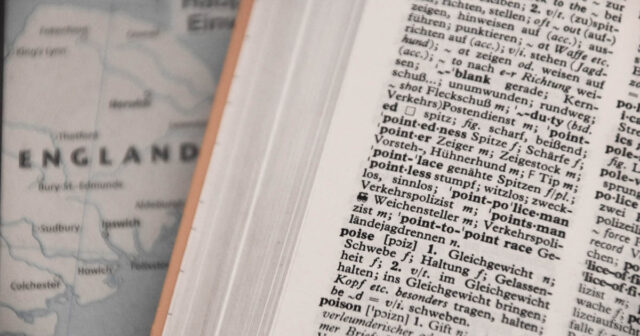Dialects
Equip yourself with the knowledge needed to proofread and edit documents in different English dialects. Read about the unique characteristics that make each dialect distinct – in particular, British, Australian, and American English.
-

UK English vs. US English Punctuation: Key Differences
UK English vs. US English Punctuation: Key Differences
Published Jun 25, 2025
If you’re working as a freelance proofreader, you’ll likely encounter documents written in both UK and US English. And while these dialects share many similarities, there are some crucial differences that can affect your work. Most people know about spelling and vocabulary differences (like organise vs. organize or trousers vs. pants). But when it comes […]
-

How to Check Unfamiliar Terms in Different English Dialects
How to Check Unfamiliar Terms in Different English Dialects
Published Apr 01, 2023
Last Updated Dec 15, 2023Even for fluent speakers, English is not the easiest language to master. English has a rich history, and because of that, many English dialects exist that can differ in spelling, punctuation, and vocabulary. As proofreaders and editors, having an opportunity to work with people from anywhere in the world is great, but it means we […]
-

British vs. American English: -Ise or -Ize?
Published Feb 20, 2023
Last Updated Jun 03, 2025The verb endings “-ise” and “-ize” often get confused. Usually, the correct ending depends on which English dialect your client is using. Here’s our guide on using these spellings in British and American English and what you need to consider when proofreading. British vs. American Spelling For the most part, American English exclusively uses the […]
-

What’s a Colloquialism?
Published Nov 21, 2022
Last Updated Apr 11, 2024A colloquialism is an informal word or phrase commonly used in everyday conversation and often specific to a geographic region. For example, the word “y’all” (you all) is commonly used in the southern US, but not necessarily elsewhere in the world. Sometimes, a colloquialism’s popularity is a bit more widespread, like “head over heels” (falling […]
-

Noun and Verb Spelling Differences
Published Nov 25, 2021
Last Updated Jan 08, 2025Correcting spelling mistakes is key for any proofreader. But certain errors are easy to miss! This is especially true when it comes to noun and verb spelling differences, partly because they often vary by dialect. In this post, we’ll be taking a look at three cases where the noun and verb forms of a word […]
-

Editing Tips: What to Do with Variant Spellings
Published Jul 08, 2021
Last Updated Jun 20, 2024If you want to pursue a career in proofreading, sooner or later you will encounter words that have variant spellings . In this post, then, we’re going to look at some common types of variant spellings and how to proofread them. Becoming A Proofreader If you would like to brush up on the basics of […]
-

Editing Tips: A Rough Guide to English Dialects
Published Apr 11, 2021
Last Updated May 16, 2023English has a lot of dialects! Our Becoming a Proofreader course covers British, Australian, and American English. These are the three main dialects used internationally, but there are many other English dialects you might encounter as a proofreader. In this post, we look at a few examples. Dialects and Proofreading Why are dialects relevant to […]
-

Proofreading Tips: What Is Oxford Spelling?
Published Apr 08, 2021
Last Updated Nov 24, 2025As a proofreader, you might come across the term Oxford spelling. But what does this mean? And how should you approach a document if your client specifies using it? In this post, we explain everything you need to know to proofread documents effectively. If you’re not sure which spelling to use for a term, check […]
-

5 Tips for Proofreading Different English Dialects
5 Tips for Proofreading Different English Dialects
Published Nov 29, 2020
Last Updated Nov 26, 2024One benefit of freelance proofreading is that you can work with clients all around the world. But this may mean you encounter English dialects that differ from the one you know best. And while this can pose challenges for proofreaders, we have a few tips that can help: Set the language preferences in your word […]
-

A Quick Guide to Canadian English
A Quick Guide to Canadian English
Published Nov 22, 2020
Last Updated Nov 26, 2024Canadian English combines aspects of both American and British English, as well as having its own purely Canadian terminology and usage. We’ve put together a quick guide to Canadian English for proofreaders to highlight general guidelines for working with this dialect. Canadian English Spelling Canadian English usually follows British spelling conventions. For instance: Canadian English: […]
